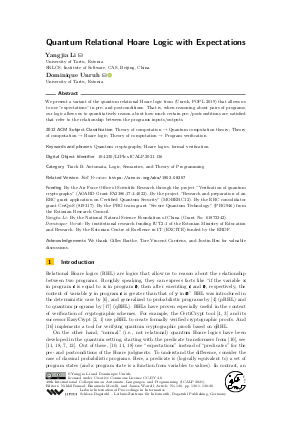LIPIcs.ICALP.2021.136.pdf
- Filesize: 0.93 MB
- 20 pages

 Creative Commons Attribution 4.0 International license
Creative Commons Attribution 4.0 International license






Feedback for Dagstuhl Publishing